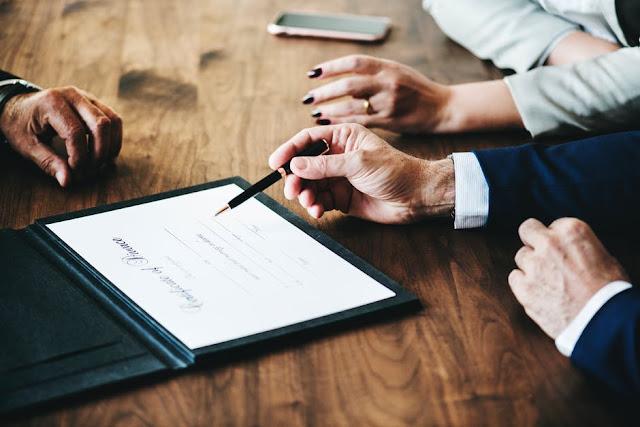A Guide to the Legal Procedures Surrounding the Death of a Loved One
Far too many people of my friends loved ones are passing away unexpectedly this year so I felt I had to share with you some this post which has some of the simple things that you need to do and complete follow a death.
If someone you love has recently passed away,
then there will be a huge amount of emotion for you to be currently dealing with. Alongside the practical planning and organisation that comes along with death, such
as making funeral arrangements, this can be a highly overwhelming time. Despite
this, there are certain legalities which need
to be sorted out in response to death that cannot be avoided or delayed, no
matter the emotional burdens you are now carrying. To help with that, the below guide will walk you through some of
the essential information you need to get through, and some of the most
important legal procedures so that you can sort things out quickly and do not
have to divert too much time away from dealing with your grief.
Registering
the death
Before anything else, you need
to find out the essential information about registering a death, as you
cannot move forward with sorting out anything else until this is done. A death certificate is
arguably the most important of all legal documents as it is the only proof that
someone has actually passed away and the
only way the pensions and security payments can end. It is also a vital
document used to settle all the deceased’s affairs and plan the funeral.
Coping
with an inquest
Sometimes, if the cause of death is unclear, an
inquest might be open where a coroner will be
tasked with determining how your loved one died, to make sure there was
no foul play. This can be extremely
difficult for families and friends as you would hope this person you cared for
passed away in peace. A good place to get advice and support is Minton
Morrill Solicitors, so that you can have some peace of
mind about the proceedings and why they are happening.
What to
do with the will
If you are reading this, it is
most likely that either you or your partner is the executor
of the will for the deceased and you need to know what things you need to do as the executor of a will, so
you don’t get into any legal trouble. The first
priority for you is to handle dependents such as pets and find them
somewhere temporary to live until the will is
heard, when you may find out the pets, for example, have been left in the care of a specific person.
Something you also need to make a priority
is keeping a close eye on the home of your loved one. It can be hard to
believe, but you can be surprised at how greedy people can become when they
think they may be able to get their hands on some money. To avoid anyone not
getting what was left to them specifically before the will is heard, do not give away or throw away any of
the deceased’s personal property, and should you think there is a real risk,
have the locks changed on the house so that you can be sure that you are the
only person with access.
Losing someone you deeply cared for is a
difficult time in your life, but now that you know some of the legal implications,
you can make the process go smoothly.



Comments
Post a Comment